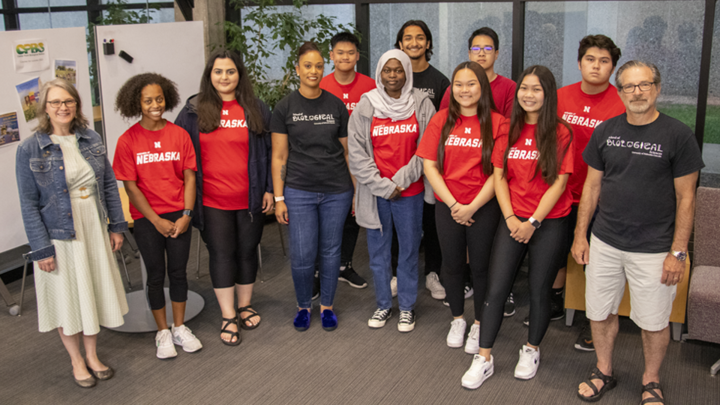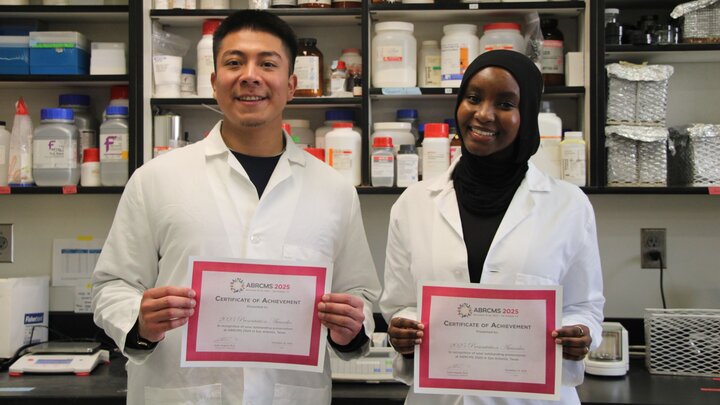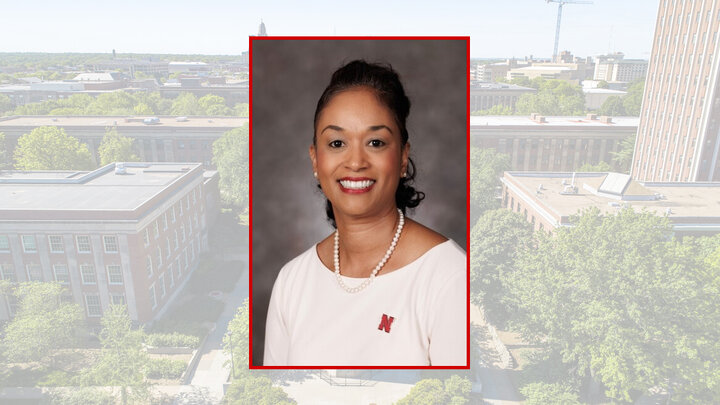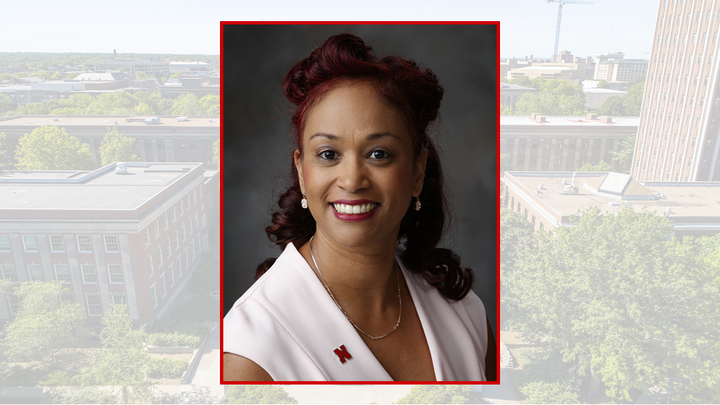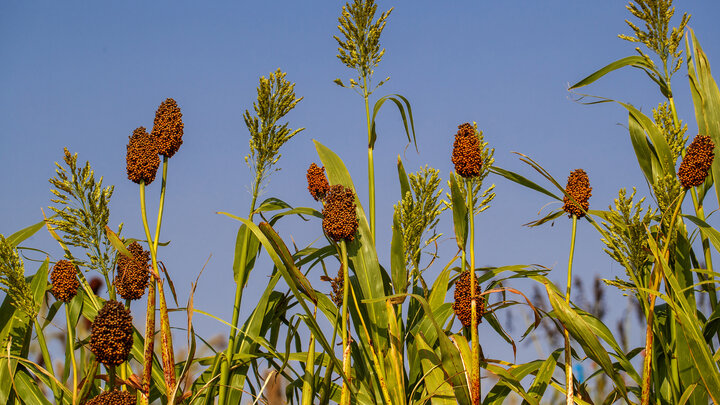Photo above: Kristi Montooth, Yasmin Worth, Sarah Omar, Marianna Burks ,Andy Nguyen (back), Manal Amon, Irving Salinas (back), Anh Le, Paul Mai (back), Amy Le, William Cao (back), Michael Herman.
A new mentored research experience for first-generation and underrepresented undergraduate students bridges their transition from high school and supports their life science education throughout their time at the University of Nebraska–Lincoln.
The Upward Bound Math-Science Research Bridge Program in the Life Sciences is a partnership between the School of Biological Sciences (SBS) and TRIO's Upward Bound Math-Science (UBMS) Program. Scholars conduct research and participate in professional development activities in the paid internship for eight weeks during the summer with faculty and researchers in SBS and the Department of Chemistry, culminating with symposium presentations.
Nine students starting their major in the life sciences this fall were selected for the program's launch and matched with mentors.
"The contribution of our Scholars to the science and to their lab communities this summer has been fantastic," Marianna Burks, one of the program's directors, said. She is a science specialist in TRIO's Student Support Services (SSS) and an instructor in SBS. "It has been very rewarding to hear our Scholars use words such as independent, supported, and confident to describe their experiences in the lab, and to see their surprise when they were generating new data within days of stepping in to their labs."
In addition to Burks, the program is being implemented by SBS faculty members Kristi Montooth (co-director), Michael Herman, and Brian Couch, as well as Joan Mendoza-Gorham, Hoa Nguyen, and Kyly Baxter of UBMS.
"Being a part of a lab provides students with a home base on campus," Montooth said, "a place where they are supported by the collective experiences of others who have been first-year students in STEM."
The program will support the students' experiential involvement in life science research, education, and professional development. Research opportunities can continue through the university's First Year Research Experience (FYRE) and Undergraduate Creative Activities and Research Experience (UCARE) programs.
The initiative supports the retention and success of students in science, technology, engineering, and mathematics (STEM) majors and facilitates their development into scientists.
"Our goal is to form community around research that supports the advancement of people in STEM fields," Montooth said.
